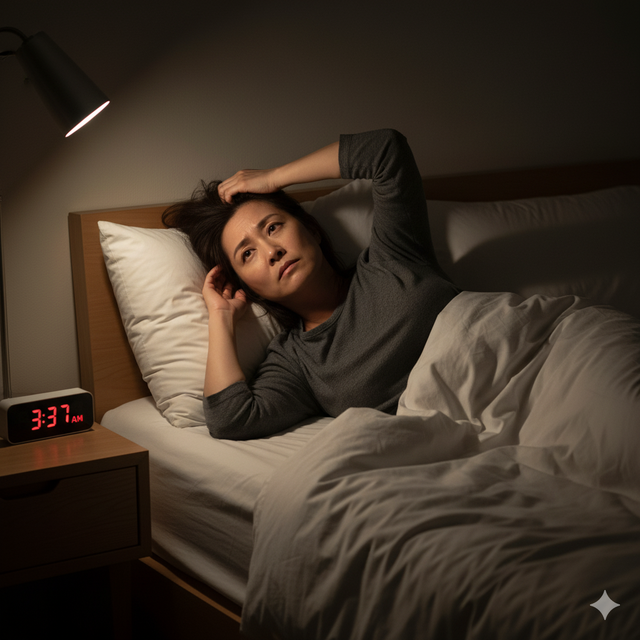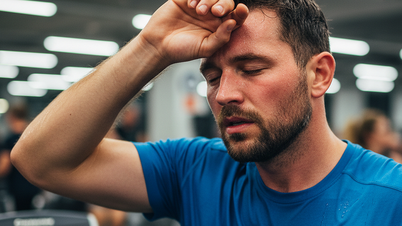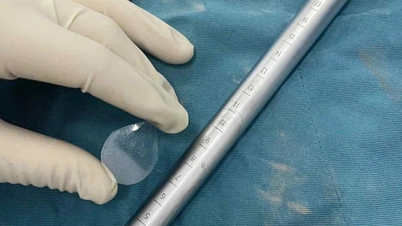Insomnia at night makes many people face excessive sleepiness during the day. According to statistics, up to 40% of the elderly do not get enough sleep, affecting the heart, blood pressure, blood sugar, mental and immune systems.
In order to understand the underlying cause of nighttime insomnia causing excessive daytime sleepiness and the role of diet, researchers from Brigham and Women's Hospital, Harvard Medical School, and five major universities in the US analyzed data from more than 6,071 participants, with an average age of more than 48.
Study participants answered questions about daytime sleepiness. Information about diet, sleep, conditions such as insomnia, sleep apnea, and sleep duration was also collected. This data was then compared to find a link between blood levels of substances and daytime sleepiness.

According to statistics, up to 40% of older adults do not get enough sleep.
Illustration: AI
Results found that omega-6 fatty acids have the ability to improve sleep quality, thereby reducing daytime sleepiness.
Specifically, people with high blood levels of omega-6s — a type of polyunsaturated fat (PUFAs) — were less likely to experience daytime sleepiness.
This result is similar to previous studies, showing that omega-6 fatty acids help improve sleep quality and reduce daytime sleepiness.
Researchers concluded: Diets rich in omega-6 may be associated with better sleep quality and reduced daytime sleepiness.
Where are omega-6 fatty acids found?
Omega-6 is an essential fatty acid that the body cannot produce on its own. It is found in abundance in nuts (including nuts such as cashews, walnuts, etc. and seeds such as flaxseeds and chia seeds), vegetable oils and fatty fish.
Source: https://thanhnien.vn/loai-thuc-pham-duoc-khoa-hoc-chung-minh-tri-chung-mat-ngu-185250831063848445.htm


![[Photo] Keep your warehouse safe in all situations](https://vphoto.vietnam.vn/thumb/1200x675/vietnam/resource/IMAGE/2025/10/1/3eb4eceafe68497989865e7faa4e4d0e)
![[Photo] Hanoi morning of October 1: Prolonged flooding, people wade to work](https://vphoto.vietnam.vn/thumb/1200x675/vietnam/resource/IMAGE/2025/10/1/189be28938e3493fa26b2938efa2059e)



![[Photo] President of the Cuban National Assembly visits President Ho Chi Minh's Mausoleum](https://vphoto.vietnam.vn/thumb/1200x675/vietnam/resource/IMAGE/2025/10/1/39f1142310fc4dae9e3de4fcc9ac2ed0)
























































































Comment (0)